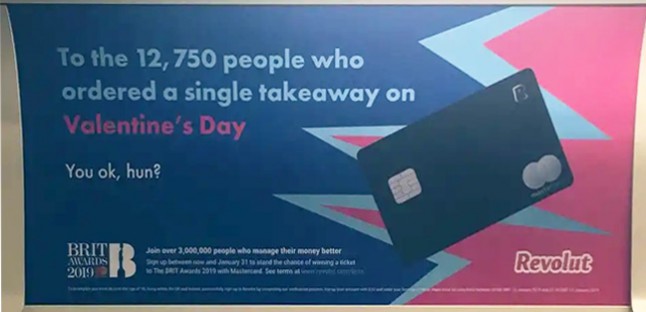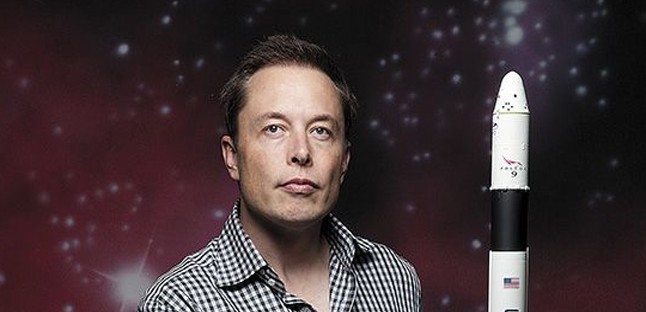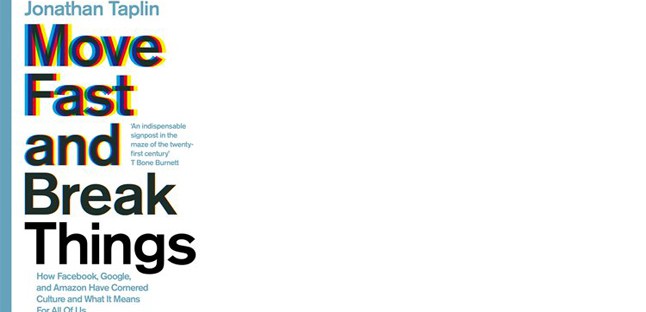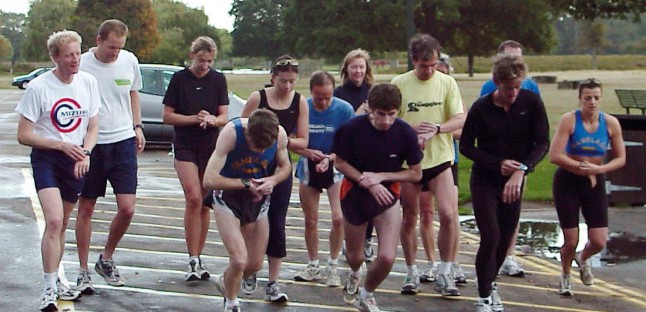Back to all posts
Latest posts
A masterclass in creating value
What’s going on at parkrun?
Virtue-signalling all the way to the bank
Bud Light: brand purpose or virtue-signalling?
The Coddling of the American Mind, by Greg Lukianoff and Jonathan Haidt
Belonging, by Owen Eastwood
Such a simple thing
The Long Win, and The Scout Mindset
The Cult of We by Eliot Brown and Maureen Farrell
Coffee and covid modelling
By theme
Marketing strategy
Insight & metrics
Innovation & inspiration
Brand & positioning
Marketing communications
Business purpose
Leadership
By industry sector
Financial services
Retail
FMCG
Technology & start-ups
Consumer services
Business to business
Other sectors
By type
Books
Comment
Quotes
Thought leadership
As the trial in the US begins of Elizabeth Holmes, briefly the world’s youngest billionaire, I’m reposting the piece I wrote about her two years ago. Her story starts with the kind of big hairy audacious goal that was lauded by business school gurus twenty years ago. It’s a story of an ambitious upstart challenging entrenched interests with vision and confidence. That all sounds great, so why was it wrong? More to the point, Read More
Best practice sounds like the sunny uplands. But for marketers and brand-builders it can do more harm than good. Digital marketing looks for proven techniques, to establish “best practice”. That leads to observing and following competitors. But here’s the rub. Best practice is about doing things the right way. Brand and marketing are about effective expression of your own business strategy. No other business can show you the right way to be you.
There are some areas of business where there are right or best ways to do things, Read More
Innovation. Should you fail fast, or never give up? How can you tell a good idea, not yet solved, from a hopeless one? Elizabeth Holmes of Theranos never gave up. She named her invention the Edison, in honour of the American inventor of the lightbulb, Thomas Edison. He supposedly said, “I haven’t failed, I’ve found 10,000 ways it doesn’t work.”
Holmes’s company was reported to be worth $10 billion by 2013 and she was a paper billionaire. Read More
The old saw “All publicity is good publicity” is being sorely tested. In the first month of 2019 we’ve had at least three major incidents. First there was vegan-sausage-roll-gate, in which Greggs caused grave offence to meat eaters. Well, Piers Morgan. Then men worldwide were outraged by Gillette telling them to show their feelings more, but not the mean ones. Today’s hurt is brought to you by a “digital banking alternative” called Revolut. Read More
There’s a sort of Elon Musk cult on Quora, with questions like: How did Elon Musk learn so much? Is Elon Musk a visionary or just a crazy man? Does he think ten times faster than other people? Why doesn’t he wear the same outfit all the time like Mark Zuckerberg does? Does he take vacations? And also: Has Elon Muck committed any crimes? With Elon Musk hurting so many people’s business, how does he stay safe from people that want him “gone”? Read More
It’s easy to project altruistic motives onto young, Gap-clad, seemingly naïve, computer-gaming geeks who appear to care more about coding than about money. This book makes a strong case that it’s the rest of us – including governments – who are the naïve ones. Taplin spent his life in music and film, and started an early legal content-streaming business. He uses personal stories to show how the internet’s biggest jockeys Google (with YouTube) Facebook and Amazon have built their profits from the pockets and creativity of others. Read More
A dull autumn morning in a park in south west London, in 2004. Nine men and four women line up on an improvised start line. A lean South African called Paul Sinton-Hewitt takes a photo, then calls “Go!” and the first Bushy Park Time Trial is underway. He waits while they run out of sight around the park, then clocks the first two finishers, who cross the line side by side in just under nineteen minutes. Read More
Algorithms are distorting the news and, maybe, damaging democracy. So says everyone (that’s to say, everyone in my filter bubble). Personalisation can take us to an online world perfectly in tune with our preferences, interests and opinions, in which everything feels relevant and nothing is dissonant. Bad for democracy it may be, but it’s the holy grail of marketing. What’s more, it can be done by machines, thanks to online analytics and algorithms. But marketers are not redundant just yet, Read More
Disruptive innovation seems easy for start-ups and feels threatening and difficult for established businesses. But they can do it too. Here are five guiding principles to help you.
First, think of being disruptive as an outcome, not a strategy. It’s rarely an end in itself. No, not even for Uber. I’m sure their funding pitch talked about being disruptive but the essence of the idea was using mobile technology to match capacity with demand in real time. Read More
The future is already here, it’s just unevenly distributed, goes the saying. Logically, the most developed markets are ahead, so what they have now is what we’ll get soon. In Europe, we used to look at the USA and Japan for trends and innovation ideas which we could adopt or adapt to our own marketplace. In food and beverage, this held true for a long time, in part because it’s a self-fulfilling prophecy. Corporations large and small imported or copied successful products and brands from markets they saw as being more advanced. Read More
Back to all posts
Latest posts
A masterclass in creating value
What’s going on at parkrun?
Virtue-signalling all the way to the bank
Bud Light: brand purpose or virtue-signalling?
The Coddling of the American Mind, by Greg Lukianoff and Jonathan Haidt
Belonging, by Owen Eastwood
Such a simple thing
The Long Win, and The Scout Mindset
The Cult of We by Eliot Brown and Maureen Farrell
Coffee and covid modelling
By theme
Marketing strategy
Insight & metrics
Innovation & inspiration
Brand & positioning
Marketing communications
Business purpose
Leadership
By industry sector
Financial services
Retail
FMCG
Technology & start-ups
Consumer services
Business to business
Other sectors
By type
Books
Comment
Quotes
Thought leadership








